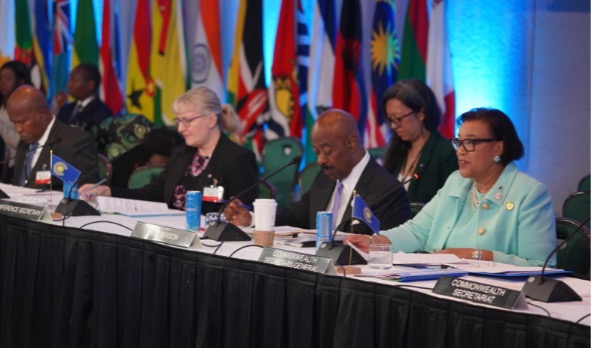Jamaica says it has activated its national Ebola Virus Disease Response Plan after the Trinidad-based Caribbean Public Health Agency (CARPHA) warned that regional countries should seek to enhance disease surveillance at ports of entry and at health facilities following the categorisation of the current outbreak of the Ebola virus disease (EVD) as a public health emergency.
Kingston joined St. Lucia and Barbados that have both indicated that steps were being taken to ensure that their populations are not put at risk for the disease the World Health Organisation (WHO) has declared a Public Health Emergency of International Concern (PHEIC).
In a statement to Parliament on Tuesday afternoon, Health and Wellness Minister, Dr Christopher Tufton, said the WHO declaration signals that there is an extraordinary event which has been determined, to constitute a public health risk to other States through the international spread of disease; and to potentially require a coordinated international response.
He said this implies a situation that is serious, unusual or unexpected, carries implications for public health beyond the affected State’s national border and may require immediate international action.
Tufton said that the response plan, developed in 2014, is to increase awareness, educate stakeholders, and prepare the country for any eventualities and that the Ministry will be sensitising all relevant categories of persons, including the members of its health team, ministries, departments and agencies and the public; heightening surveillance activities at points of entry and scheduling sensitisation sessions for healthcare workers.
The deadly Ebola virus was first discovered in 1976 near the Ebola River in what is now the Democratic Republic of Congo. It spreads to people through direct contact with bodily fluids of a person who is sick with or has died from the disease.
“Given the relatively robust surveillance and infection prevention and control practices in Jamaica, the public can be reassured that the current emergency response arrangements are in place to enable an appropriate response in the event of the introduction of the ebola virus disease into the country,” Tufton said.
“The Ministry will also be ensuring capacities for readiness which includes addressing stock levels of critical equipment and supplies, protocols for specimen and patient transportation and reporting requirements,” he added.




